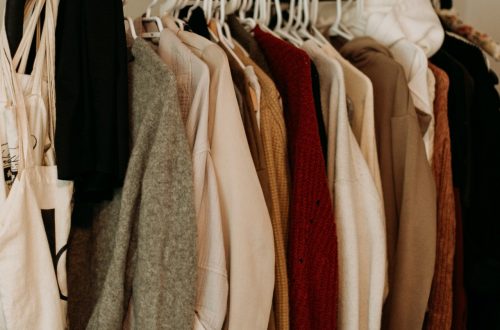
How to Know if a Wholesale Clothing Store Is Legit?
A wholesaler is a company that purchases goods from manufacturers and resells them to other companies. The wholesaler does not have a shop; instead, they provide merchandise to your small business, which you then sell to clients.
Wholesale distributors play a crucial role in linking manufacturers and store owners, whether you run a brick-and-mortar business or an e-commerce site.
However, some of these sites don’t look or sound particularly professional and you don’t want to trust such large amounts of money to a company that might not be real. So how to tell if these suppliers are legitimate or not?
How to Tell If a Wholesale Website Is a Scam?
You’re right to be wary. You can certainly lose a lot of money by ordering products from suppliers who are not real, which is why it is so important to take precautionary measures to ensure you are only using the best companies. Here are some red flags to warn you when you are in dangerous waters and tips to help guard against losing your money.
- Get a reseller’s permit. This is also known as a tax ID number. You will have to get one anyway to give to legitimate suppliers when you order products. If a supplier doesn’t ask for this number, they’re probably not legitimate.
- Call the supplier. Search for their physical address on Google maps and verify that it is an actual place. If you are within a reasonable distance, you can even visit the supplier.
- Invest in becoming a member of a wholesale directory or forum. These narrow down the list of suppliers to ones that are well known and used often. You can also use the forum to ask other wholesale buyers what their experiences have been with certain suppliers. Wholesale Suppliers & UK Wholesale Products Trade Directory – eSources.co.uk is a good directory, as it lists suppliers in the US and UK.
- Only use PayPal or an escrow service when first dealing with a supplier. If a supplier does not allow you to use PayPal or an escrow service to make payments, then there is good reason to believe that they are unreliable.
- Do a Google search on the company with the word ‘legitimate’ in the search terms. Many times this will bring up negative news or reviews about the supplier if there are any.
- How old is the supplier? How old is the website and when has it last been updated? If it has not been updated in a while, then the supplier is not offering new products and the website is probably a decoy, or the company is probably out of business and just hasn’t bothered taking down their site.
- Check the supplier’s website for reviews or testimonials.
- Buy samples from the supplier. Check to see that the merchandise is genuine. You can even call the original manufacturer to see if the supplier is registered with them.
- Ultimately, you’ll have to go with your gut feeling and take into account all of the input you received about the company you’re looking into. If you are not totally sure that the company is legitimate and you will not lose money, then look elsewhere. It is not worth losing your money.
How to Know If a Wholesale Store Is Legit?
Lots of wholesale sites are just plain tacky. Many times suppliers focus on getting their products to you more than they focus on the presentation of the products they sell. That said, you still definitely need to watch out for websites that are not real. Just because a site isn’t the best out there, though, doesn’t mean it’s a scam. Here are a few things you can look for in order to ensure that the website you’re looking at is legit:
- The website should be organized and well-linked. A design theme should flow throughout, whether it is a logo, color, or another theme. On that same thread, the pictures should belong to the website. If you right-click on an image and go down to properties, and the image’s filename displays a completely different website, you should not use the company.
- There should be no errors in spelling or grammar and the text should be easy to read. The text should also all be visible. If there’s lots of text on the page that’s the same or very similar color to the background, then it might be a spam site.
- Bad customer service is a sign that the supplier does not care about its buyers and is not to be trusted.
- Call the contact number they list in the Contact Us section. If there is no Contact Us section, steer clear.
- Go to Domain Tools: Whois Lookup and Domain Suggestions and paste the web address into their WHOIS search tool to find out the registrar information on the website in question. If there is little to no information, or if the information given is invalid, then you should be very very careful about dealing with the company in question.
Find the Best Wholesale Supplier for Your Small Business
You may engage with one wholesale distributor or numerous as a small firm. Finding the ideal companion, though, maybe difficult. You’ll need to choose a wholesale distributor that can provide the following services:
- Connects you with the manufacturers and products your business needs
- Has prices you can afford
- Serves your geographic region
- Is reliable, trustworthy, and easy to work with
You need to know what items you’re selling before you can identify the ideal wholesale organization to work with. You may start looking for the ideal wholesaler to supply your business once you know what you’re looking for.
1. Understand Your Industry’s Distribution Channels
A product can be delivered to a shop in a variety of ways. Not every wholesaler caters to the same clientele. Understanding the distribution channels and supply chain in your sector will assist you in locating the best wholesale supplier for your retail or online business. Wholesalers come in a variety of shapes and sizes.
- Manufacturer: You may buy certain things straight from the manufacturer. Boutiques typically purchase from tiny (and occasionally single-person) producers.
- Importer/Exclusive Distributor: In some cases, a firm may have exclusive rights to import and distribute a product in a given nation. Some sell to retailers directly, while others sell to smaller local wholesalers who then sell to shops.
- Wholesaler/Regional Distributor: Regional wholesalers normally take delivery of boxcar-sized quantities and sell to local wholesalers, who subsequently sell to small firms.
- Jobbers: These folks distribute goods to local grocers and retail businesses on a regular basis.
Some merchants will move enough volume to avoid jobbers, or importers may sell straight to retailers in a smaller sector. Each sector has its own distribution routes, which might be different depending on the product, area, or nation.
You’ll be buying from smaller wholesalers at greater prices when you initially start. You’ll be able to secure better prices or move up the supply ladder to a bigger wholesaler as your volume grows.
2. Try the Manufacturer First
Paying wholesalers reduces your profit margins. You may start at the source to eliminate intermediaries from the equation.
If you’re selling branded merchandise, contact the product’s producer directly. Depending on their minimum order criteria, they may sell to you. Ask them for a list of trustworthy distributors you may contact if you’re too small for them or they only distribute through established distribution channels.
The less people you have to deal with, the cheaper your costs will be, allowing you to compete on a more level playing field.
Request a sample of the product you plan to sell when you contact the manufacturer. This will give you the opportunity to evaluate it and make sure it’s something you want to sell.
3. Have a Productive First Contact With a Wholesale Supplier
Start contacting wholesale wholesalers, either using the manufacturer’s list, phonebook listings, or a wholesale directory. You’d want to know:
- Their order minimums are strict.
- Their unit pricing at wholesale
- The area that they serve
This initial contact can be made by phone or email, with a phone call to follow up if you want further information or choose to proceed. Be honest about what you’re searching for and don’t try to appear bigger than you are to discover the greatest potential match for your company.
Don’t be scared to tell individuals you’re conducting research and looking at other rivals while you’re talking to them. Even if you’re just starting out, this can help you acquire better rates.
4. Get Specific in Online Searches
Don’t merely look for wholesalers or distributors in general when searching online. Include keywords related to your products or specialty. Product names, model numbers, and brand names are all good options. If you can’t locate an email address or phone number for any of the possible distributors you identify, you may do a WHOIS search to uncover the website owner’s contact information.
The more wholesalers you find, the better you’ll be able to compare rates and get a sense of what’s typical in the business, as well as acquire competitive quotations.
5. Look for Wholesale Lots on eBay
Because eBay caters primarily to retail customers, the wholesale choices available are typically limited to relatively low volume businesses. However, if you’re just getting started in e-commerce, eBay can be the perfect place to start.
It’s also feasible that people who sell directly to consumers on eBay have a business-to-business element to their operation. It’s simple to get in touch with them on eBay to see whether that’s the case.





